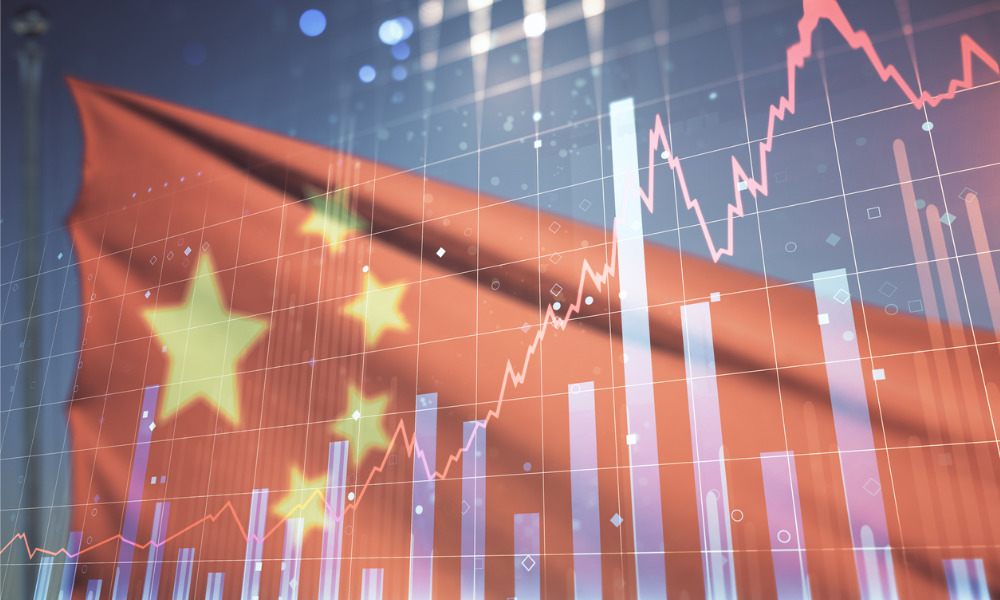

One of the most popular ETFs in emerging markets is quickly falling out of favor after a stellar two-year run as investors reassess the outlook amid global growth concerns and simmering trade tensions.
The largest emerging markets ex-China ETF saw record redemptions last week — leaving it on track for one of the few monthly outflows since 2022. It’s an abrupt change for investors who had been piling in for 24 straight months, fueling a 745% surge in the fund’s assets, according to data compiled by Bloomberg.
Chinese markets have underperformed for years amid lingering questions about the country’s ability to deliver growth and geopolitical tension with the US. The disappointing returns led to a boom in ex-China ETFs, offering emerging-market investors ways to capitalize on gains in markets including India. But now, Beijing’s fresh stimulus push, coupled with optimism about Chinese AI development, is luring money managers back into ETFs that buy Chinese stocks.
“Despite ongoing geopolitical frictions, China’s latest AI strides have upended the ‘China-last’ narrative, reaffirming its dominance as a key player in emerging markets,” said Sylvia Jablonski, the chief executive officer of Defiance ETFs. “For investors, ignoring this level of innovation means leaving a seismic shift in global tech on the table.”
Chinese stocks have been on a volatile stretch. A stimulus blitz in late September spurred local shares to jump almost 40% in three weeks, before fading toward the end of last year amid disappointment over the lack of further policy support. The rally has resumed since mid-January as the emergence of DeepSeek’s AI tool ignited optimism toward China’s growing clout in the tech sector.
The revival also comes as investors look for cheaper alternatives to the equity market in the US where the so-called magnificent seven lose steam and back and forth on US tariff policies rattles the outlook for the world’s largest economy.
The MSCI China Index returned 38% over the past 12 months, handily beating the 1.7% gain in the MSCI ex-China index and the 9% increase in the broad EM benchmark. The S&P 500 is up 10.5% in the span.
Total assets held in the iShares MSCI Emerging Markets ex-China ETF have dropped 17% from a peak in September. In comparison, the market value of the iShares MSCI China ETF have increased by more than 20% over the same period despite volatility.
“There is still a decent amount of money that believes China is uninvestable, but for the rest I think it will be more of a cyclical play,” said Greg Lesko, a money manager with Deltec Asset Management in New York. Lesko’s firm has reduced its underweight position in China recently due to state support for the private sector, he added.
To be sure, some of the structural tailwinds behind the rise of EM ex-China strategy remain in place, including China’s on-going tensions with the US. Calling Beijing a “foreign adversary,” the Donald Trump administration has rolled out a memorandum seeking to curb Chinese spending on tech, energy and other strategic sectors in the US, as well as increase the scrutiny over US investments in Chinese companies.
Last year marked a record for ex-China ETF launches from firms ranging from State Street Global Advisors to boutique shops like Avantis Investors and Polen Capital Investment Funds. At the same time, it saw about 20 China-specific ETF closures – representing roughly 10% of all US-listed ETF shutdowns throughout the year.
But even managers who believe in the long-term value of shifting away from the Asian country say momentum for the so-called ex-China trade has slowed.
“At the end of the day, it’s where the performance is,” said Jerry Wu, a fund manager at Polar Capital LLP, which launched its own EM ex-China fund late last year.

Driven by robust transaction activity amid market turbulence and increased focus on billion-dollar plus targets, Echelon Partners expects another all-time high in 2025.

The looming threat of federal funding cuts to state and local governments has lawmakers weighing a levy that was phased out in 1981.

The fintech firms' new tools and integrations address pain points in overseeing investment lineups, account monitoring, and more.

Canadian stocks are on a roll in 2025 as the country prepares to name a new Prime Minister.

Carson is expanding one of its relationships in Florida while Lido Advisors adds an $870 million practice in Silicon Valley.
RIAs face rising regulatory pressure in 2025. Forward-looking firms are responding with embedded technology, not more paperwork.
As inheritances are set to reshape client portfolios and next-gen heirs demand digital-first experiences, firms are retooling their wealth tech stacks and succession models in real time.
